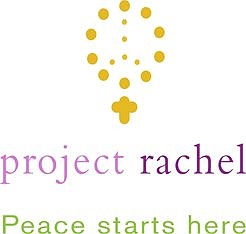February 5, 2019 at 3:20 p.m.
Forgiveness, hope and healing: three simple but powerful messages the Albany Diocese is hoping to provide women through Project Rachel Ministry, the latest diocesan project.
Project Rachel offers care and healing opportunities to those who had an abortion and resources for women who are struggling after having obtained an abortion.
“I’m hopeful that this is something that will bring a lot of peace to people, and help them realize the Church is a place of healing and mercy,” said Mary Fay, the diocesan associate director of Marriage and Family Ministries.
Project Rachel is a confidential network made up of specially trained priests, counselors, support groups and lay people, all working to provide care for those suffering during the aftermath of an abortion.
While under the umbrella of the United States Conference of Catholic Bishops, Project Rachel operates as a diocesan-based network, working out of stationed ministries across the country. The ministry currently operates out of all eight diocese in New York State.
Mrs. Fay and Renee Morgiewicz, diocesan coordinator of Respect Life Ministry, spearheaded the movement of adding the Albany Diocese to the list of places Project Rachel was available. The timing of the ministries arrival is fitting with the recent passing of the Reproductive Health Act (RHA), which increased access to abortion across the state: “Because of the RHA we really need to make sure people are aware there are opportunities for healing out there,” said Mrs. Fay.
The Albany diocesan Project Rachel will offer a variety of options for healing that works with each individual based on where they are in the recovery process. The ministry is facilitated through a main phone line, which has been up and operating since Dec. 28, the Feast of the Holy Innocents.
Some resources offered include: pastoral/ spiritual guidance, liturgies and retreats, support groups, prayer support, and referrals to professional counseling. Priests are available to offer the Sacrament of Reconciliation, and a number of diocesan priests have volunteered to be “on-call” to speak with anyone who may be struggling.
Even before Project Rachel, Mrs. Fay had been taking calls from individuals struggling after abortion. The calls were sparse, but often came from women looking to bring closure about their decision to abort, or how to obtain peace of mind and forgiveness.
A lot of women “feel condemned or judged” for having had an abortion, said Mrs. Fay, and they may not see the Church as a place for mercy.
Rather, Mrs. Fay said “we need to offer [women] a way to find their way back into the arms of God” and show that their choice “is something they can grow from.”
Mrs. Fay is hopeful that Project Rachel will be a help to everyone in the Diocese, not just those who have been involved in abortion.
“It helps Catholics in the pew, who may have had no experience of an abortion — and no idea of the trauma and the grief that’s involved in loss — to understand that these things are happening to people every single day, especially in New York State, so they can be that person from the pew that knows this program is available and offer it to someone on the street.”
Mrs. Fay anticipates information and promotional materials on the Project Rachel Ministry will be sent to parishes around Lent. Until then, “the phone line is live now, and the resources are available for anyone who might need it.”
To contact the Project Rachel Ministry, call 518-312-3825 and information is available at rcda.org/life.
- Full Text: Pope Leo XIV’s Angelus address given Feb. 15, 2026
- Bishop Zurek resignation accepted; Cardinal DiNardo named as apostolic administrator of Amarillo
- Judge orders Catholic group have access to ICE facility on Ash Wednesday
- UK Catholic lawmakers fight to stop ‘outrageous’ bills on assisted suicide, abortion up to birth
- At least 9 bishops join Bishop Rhoades in outcry over Notre Dame appointment
- Head of Ukrainian Catholic Church meets with Pope Leo, calls Ukraine ‘wounded but alive’
- What can the Year of St. Francis do for the world? A lot, say these Franciscans
- Ave Maria University battles measles outbreak
- Crime 101
- Pope Leo appoints Vincentian sister as new deputy of Vatican press office








Comments:
You must login to comment.